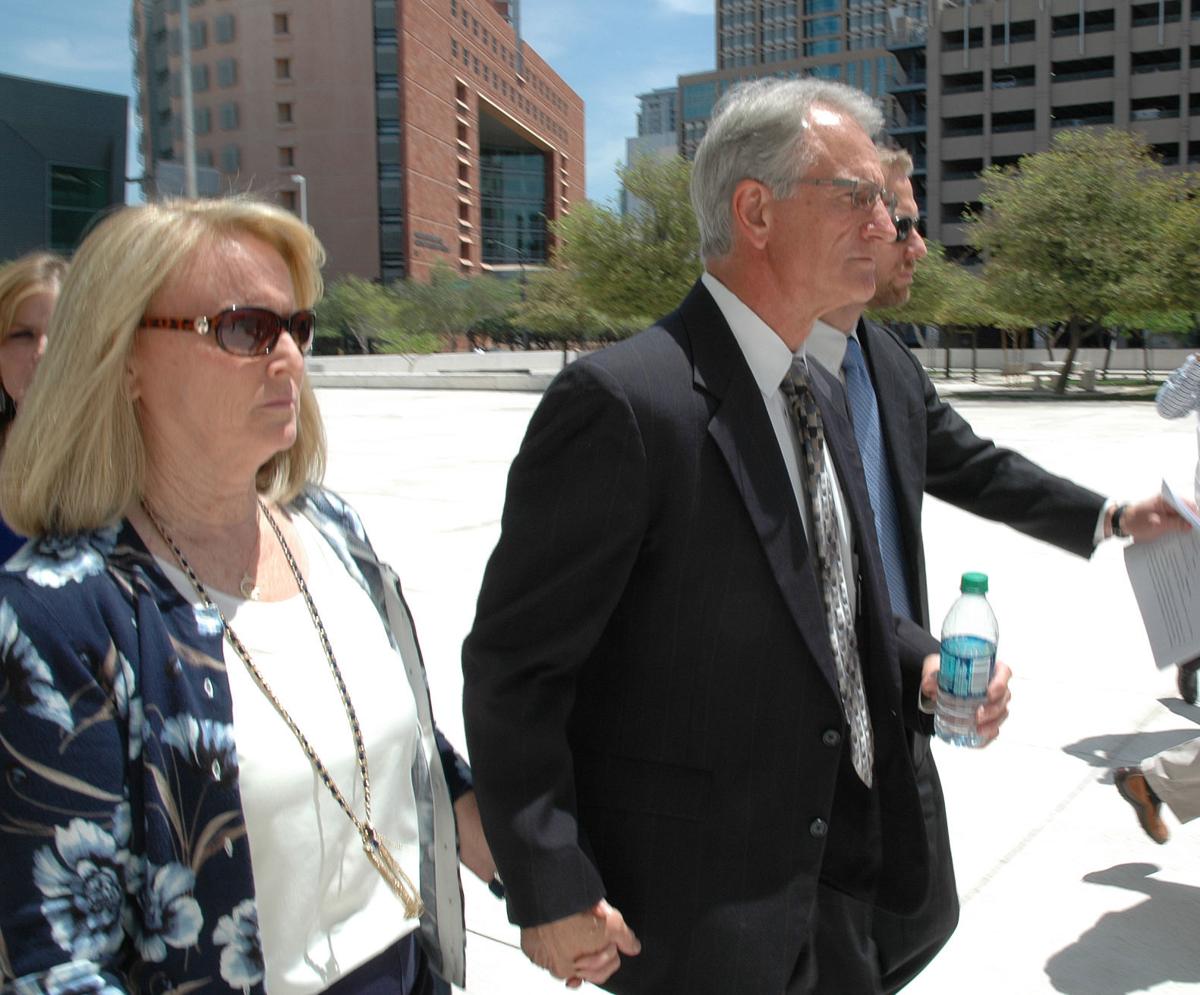A federal judge rejected a bid by a former utility regulator, his wife, a lobbyist and a utility executive to throw out criminal charges against them.
In a ruling Wednesday, Judge John Tuchi sided with federal prosecutors in concluding that there’s nothing inherently unconstitutional about federal laws which make bribery a crime. More to the point, the judge said the statutes are sufficiently clear to allow Gary Pierce and the others to defend themselves when the trial starts on May 30.
Similarly, Tuchi refused to void another measure in the indictment, this one charging the defendants with defrauding the public of the “honest services” of their officials.
The defendants had no better luck in convincing Tuchi that the jurors who will hear the case should not be told about the money that flowed from Johnson Utilities to the lobbying firm of R&R Partners. And the judge also said jurors will be able to see telephone records of contacts among the defendants.
All this is crucial as federal prosecutors seek to prove that George Johnson, who runs the water and sewer company that bears his name, illegally funneled money to Pierce, then a member of the Arizona Corporation Commission, in exchange for his vote on two issues before the panel.
One involves a 2011 vote to increase the value of the company. That, in turn, allowed Johnson Utilities to collect more from customers. The other is a 2012 change in commission policy, crafted by Pierce, allowing the owners of small companies like Johnson Utilities to recover some of their personal income taxes through higher rates.
The bribe, according to the indictment, was $31,500 provided by Johnson through lobbyist Jim Norton of R&R Partners, that eventually went to Sherry Pierce for what prosecutors say was minimal work. That money, the government charges, wound up in the couple’s joint bank account.
In legal filings with the court, Norton’s attorney, Ivan Mathew, argued that statutes are unenforceable if they involve “guesswork and intuition” and fail to provide fair notice to people of what is and is not illegal.
“Simply, defining something as illegal is unconstitutionally vague,” he wrote.
Anyway, Mathew argued, there is evidence that Sherry Pierce actually did work. So he said there can be no bribe.
Tuchi did not explain his reasoning for siding with prosecutors and refusing to void the criminal charges.
Separately, Tuchi rejected a bid by Woody Thompson, Johnson’s attorney, to preclude any testimony about his client’s income and net worth.
“The only purpose would be to appeal to the jury’s passions by portraying Mr. Johnson as a rich, greedy developer and utility owner out to make additional profit any which way he could,” Thompson argued.
“Such character assassination is not a legitimate reason,” he said. “This case should be decided on its merits, not based on the wealth of one of the parties.”
Thompson had no better luck in convincing the judge that jurors should not be told about efforts by Johnson in 2007 and 2013 to sell the utility to the town of Florence. That sale did not take place, the attorney said, and all the events occurred “years before the date of the alleged conspiracy.”
But he did get Tuchi to rule that jurors cannot be told about any investigations or notices of violations issued to Johnson Utilities by the U.S. Environmental Protection Agency, the state Department of Environmental Quality and the state Attorney General’s Office.





